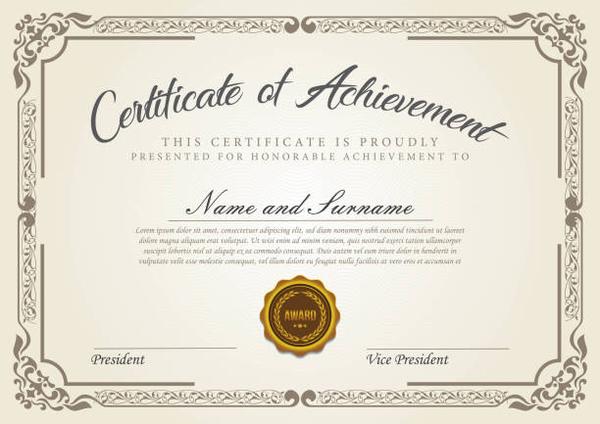
The Authenticating degrees tool helps to determine whether applicants have stated their education truthfully on their resume. This is crucial, as fake credentials are becoming more prevalent among diploma mills.
This kind of fraud makes it more difficult employers to locate qualified applicants, and also reduces the value of real degrees.
Degree Verification Process
The process of verifying degrees is among the most crucial tools for preventing academic fraud. Verifying degrees helps employers to ensure that applicants have the qualifications needed to fill a job. It also safeguards the credibility of legitimate universities and decreases the chance of diploma mills.
Online or on paper A simple and user-friendly form can streamline the verification of degrees. Utilizing a form will make time and energy for both the institution and candidate.
Students with disabilities benefit from online forms that provide clear instructions and multilingual options. They are able to supply all the information necessary to verify the degree and without confusion or error.
A lot of students and graduates need to authenticate their diplomas for international applications. AERC typically requires these documents to undergo a long authentication process. Students may not require authentication, however it is essential to inquire with the organization or institution who is asking for the document. Also, you should have a back-up plan in the case your document is not authenticated. It is possible to have a second degree certificate with a notary seal or stamp.
Credential Fraud Prevention
Credential fraud is a threat to the image of both employers and universities. It’s a multi-billion dollar industry. It can affect an organization’s capacity to find and recruit skilled employees and cause liability issues. Also, it affects the credibility and trust of professionals in their fields.
It’s a problem in the world because it’s so easy to obtain fraudulent credentials, including fake degrees. Degree scams typically involve high-pressure selling tactics and promises of accreditation by fake institutions. It is recommended to conduct thorough background checks, and also to inform hiring managers and employees about the most common fake degrees.
Dock Certs and the Dock Wallet confirm degrees immediately using blockchain technology, which makes it much easier to prove that a person actually attended an institution. It will reduce time and cost for organizations by eliminating the necessity to contact schools that have long waiting time. It also helps to reduce the possibility of fraud involving credentials and keeps companies safe and productive by making sure that candidates possess the qualifications they claim to have.
Verify Education Credentials
The verification of education is an essential step in the hiring process to ensure that candidates’ claimed educational qualifications are legitimate. However, false representations of educational credentials are not uncommon, and can undermine the integrity of the hiring process as well as a company’s reputation. It is essential to confirm the qualifications of your employees and keep detailed records to avoid fraud.
Typically, this involves contact to the school’s registrar’s office, and asking for details about the degree candidate’s attendance record and GPA. It could take a few days to verify depending on how responsive and accommodating the institution is as well as the complexity of the student’s educational background. Certain degrees also have to be authenticated or legalized if they’re going to be used outside of the country. The consulate or embassy of the country where the degree is to be presented will scrutinize the document and confirm that it is in compliance with their standards. A lot of consulates and embassies stamp or put an adhesive directly on the document to indicate that it is legally authenticated and certified. Our notary services can aid in this process by creating a notarial certification that can be added to the diploma itself.
Diploma Mills
A diploma mill is a fraudulent college or university which sells fake degrees to students, without them having done any kind of work. While some openly promote themselves as illegitimate universities some are more subtle and difficult to detect. They might need a tiny amount of courses, but not enough for them to be considered as academically legitimate. They also offer degrees for much less time than could be expected by legitimate institutions. They typically operate online and don’t have a physical address.
The diploma mills cause serious issue, since they treat diplomas as commodities that can be sold and bought. They are also a risk to society, as they allow people to obtain jobs without having the qualifications needed for the job. This is the reason that background checkers should use their expertise to spot fake schools. Background screeners can examine the information against lists of diploma mills to spot any potential problems. They are then able to report their findings to their clients. The client can then decide what steps to take.
Background Check the Degrees
In many industries, having a degree is essential for obtaining employment. A majority of jobs require a bachelor’s or higher degree of education and employers will make sure candidates are truthful about their education and experience on their resume. However, it’s not common for job seekers to overstate their educational credentials on resumes. Some resort to diploma mills to purchase fake degrees. Background checks are a way to verify the legitimacy of the education received and also help to stop fraud https://lambanggiagiare.net/.
Educational verification, often referred to as a college transcript verification or education background check examines high schools and colleges, vocational schools and universities to corroborate the candidate’s claimed education history. It includes dates attended courses of study, dates attended, and graduation status. The verification process is lengthy due to the necessity of contacting the registrar’s office of every school, and waiting for weeks or months for official documents and confirmation from the institutions.
Sometimes, it is difficult to locate documents because applicants might have changed their name or have graduated in a different country than where they live now. A reliable background screening service includes in-house verification experts who are able to speed up turnaround times and increase the accuracy.








